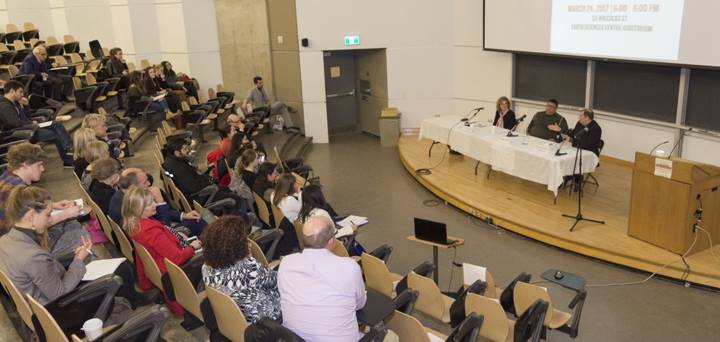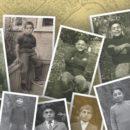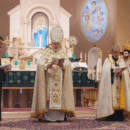By Kaitlyn Simpson
The Varsity
On the evening of Friday, March 24, the Indigenous Studies Student Union (ISSU), Armenian Students Association (ASA), and Jewish Studies Student Union (JSSU) came together to host a panel discussion entitled “Life after Genocide: From Recognition to Reparation.”
The Facebook event page stressed that the discussion was to “promote co-existence amongst minority groups.”
Following a land acknowledgement, the event began with a song by Indigenous artist Jasmine Spence. Talene Torigian, President of the ASA and Treasurer of the JSSU, shared some introductory remarks touting this specific collaboration as having “never been done before” at U of T.
Three individuals then shared their personal experiences of the impact of genocide on their communities and families.
First to speak was the Social Media Coordinator of the JSSU, Rachel Glowinsky, whose grandparents and great-grandparents were survivors of the Holocaust; next was social media executive of the ASA,Sareen Kardjian whose great-grandparents were affected by the Armenian genocide; lastly was current ISSU President Jennifer Sylvester, who spoke about her family, systemic anti-Indigenous racism in Canada, and her experiences with education.
There were three panelists who offered unique perspectives on the topic of genocide and reparations. First to speak was Professor Henry C. Theriault, the current Chair of the Department of Philosophy at Worcester State University and the Chair of the Armenian Genocide Reparations Study Group at U of T. Professor Theriault discussed the importance of understanding history “because it determines what’s going on today.”
Theriault added, “In many cases, those who really have an obligation to deal with that history through reparative justice and other methods are willfully oblivious to what is at stake and the suffering that is still in their mist.”
The second speaker was U of T professor Doris L. Bergen, the current Chancellor Rose of Holocaust Studies. Professor Bergen took an in-depth look at reparations and the many forms they take. She began by discussing the implementation and execution of reparations following the Holocaust as perhaps a “model of success.”
Bergen then explored the purpose of reparations, asking the audience to consider material reparations versus symbolic reparations, concluding that within “the complex trauma of people… there’s no way to fix or repair what has been broken.”
“I want to also draw attention to, in the case of the Holocaust most of the reparations paid, in fact, have not been paid to individuals but to collectives — usually to the state,” Bergen added.
The final speaker was Verne Ross, a social worker and a PhD student at U of T’s Ontario Institute for Studies in Education. Ross is also from the Cote First Nation in Saskatchewan.
During his talk, Ross spoke of his personal experiences, beginning: “You’re looking at someone who has struggled in the educational system.” He recounted his experiences as an Indigenous student who had a hearing impairment growing up.
Ross then spoke on various issues affecting Indigenous communities in Canada, including stereotypes within education, residential schools, and intergenerational trauma. “Something that our mothers told us,” Ross said, “is that our spirits were never meant to be caged. You caged that spirit. You’re about to kill that spirit. And that’s exactly what happened in the residential schools, the sixties scoop.”
Ross then discussed the importance of language for Indigenous communities and how stories are a tool of healing. At one point, he read a letter from his mother — a residential school survivor — reaffirming her love for him.
There was a question and answer session following the discussion, where a variety of questions were asked, touching on subjects like the education system, learning from others, and the possibilities of removing prejudice.





